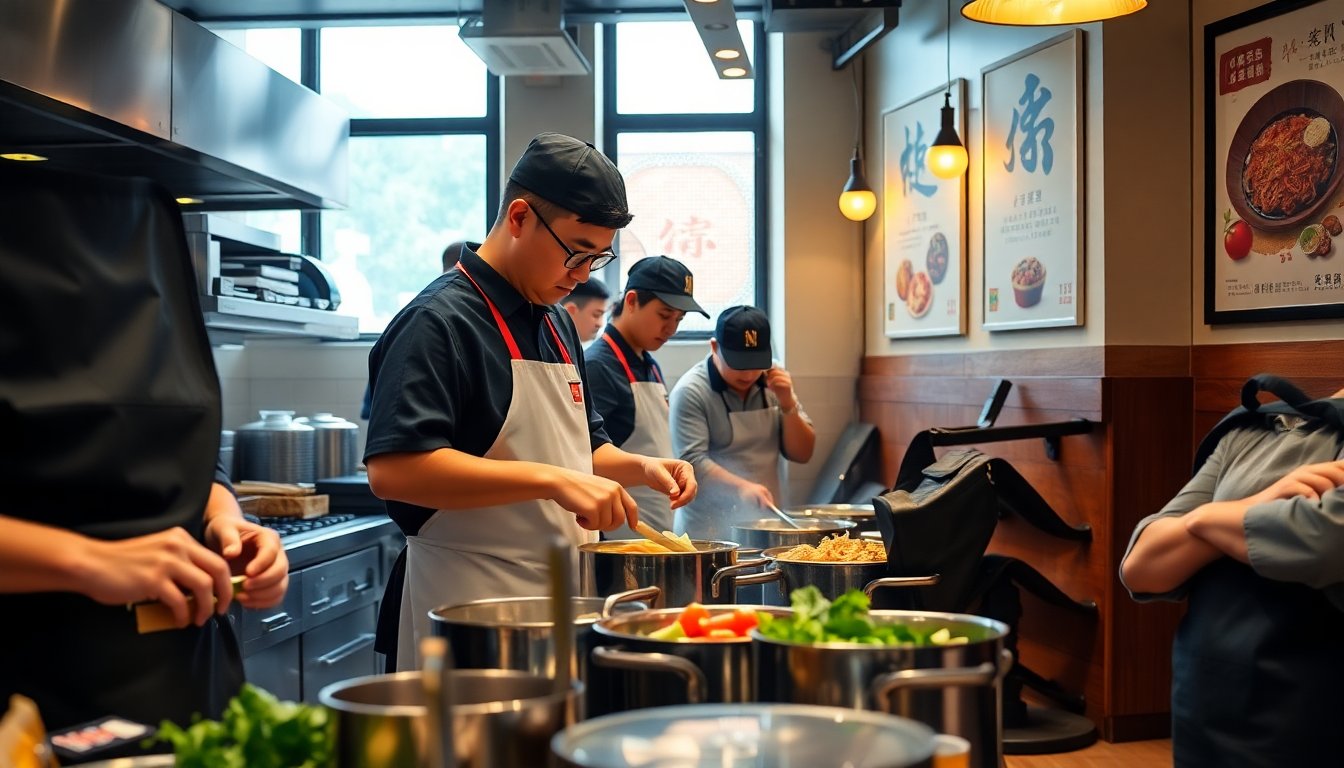Table of Contents
Hong Kong Government Strengthens Labor Regulations
In a significant move to bolster the rights of local workers, the Hong Kong government has announced stricter regulations on the importation of labor. This initiative particularly targets the roles of waiters and junior cooks. The goal is to prioritize local employment opportunities while enhancing protections for workers in the delivery sector.
Chief Executive John Lee Ka-chiu unveiled these reforms during his recent policy address, underscoring the government’s commitment to safeguarding the interests of its workforce. This development reflects a broader trend of increasing scrutiny on labor practices, aiming to create a more equitable job market.
Revised Labor Importation Scheme
The government has announced new guidelines under the Enhanced Supplementary Labour Scheme. Effective immediately, employers seeking to hire foreign waiters or junior cooks must first demonstrate that they have employed at least two local workers in similar roles. This initiative aims to prioritize local job seekers in the labor market.
Extended Recruitment Period
Furthermore, the local recruitment period has been extended from four weeks to six weeks. During this period, employers are required to participate in a weekly job fair organized by the Labour Department. According to spokesperson Lee, these measures are designed to prevent the misuse of the labor importation scheme, which has been exploited in some cases. At the same time, they ensure that businesses facing genuine recruitment challenges can access supplementary labor when needed.
Enhanced Protections for Delivery Workers
The government is implementing reforms aimed at improving compensation and support for delivery workers. This sector has experienced a notable rise in injuries and accidents, highlighting concerns regarding the safety and welfare of those employed in this field.
Legislative Support for Delivery Workers
In light of these challenges, new legislation is being proposed to strengthen protections for delivery personnel. The goal is to establish clearer guidelines for injury compensation and to foster a safer working environment. These initiatives are crucial in addressing the increasing health risks faced by individuals in this essential service sector.
Integrating Artificial Intelligence into Governance
The government of Hong Kong is launching an ambitious initiative to incorporate artificial intelligence (AI) into public services. Chief Executive Lee has underscored the significance of developing AI not just as a technological tool, but as a robust industry that can enhance multiple sectors within the city.
Streamlining Public Administration
By the end of 2027, officials plan to integrate AI into at least 200 administrative procedures, with an initial target of implementing AI in 100 processes by 2026. This shift will focus on areas such as data analysis and customer service, ultimately creating a more efficient and responsive bureaucratic framework.
Economic Diversification Initiatives
In his recent policy address, Lee emphasized a comprehensive vision for economic diversification that extends beyond labor regulations and the integration of artificial intelligence. He highlighted the importance of fostering a dynamic economy that sustains the livelihoods of local residents. Key proposals include supporting made-in-Hong Kong food products, introducing a licensing system for pet restaurants, and implementing relief measures aimed at small and medium-sized enterprises (SMEs).
Land Development for the Food Industry
To achieve these objectives, the government has allocated land near the Heung Yuen Wai boundary control point specifically for the food sector. This initiative is designed to facilitate wholesale, processing, and trading operations. These measures aim not only to strengthen local production capabilities but also to create new job opportunities.
Hong Kong’s recent policy changes demonstrate a clear focus on prioritizing local labor. The government is taking steps to enhance protections for vulnerable workers and is embracing technology to innovate public administration. These initiatives aim to foster a sustainable economic environment that benefits both workers and businesses.


